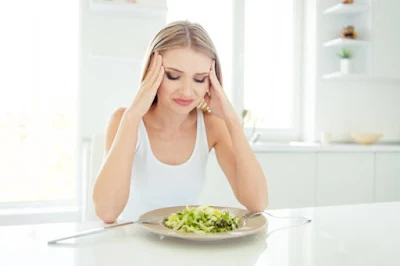Stomach Pain After Eating: Causes, Concerns, and Solutions

Stomach pain after eating is an all-too-common experience that many people face but often dismiss as a mere inconvenience. Yet, beneath the surface of this seemingly simple symptom, a myriad of potential causes and conditions could be at play. Some are benign, while others may warrant serious medical attention. So, why does your stomach hurt after a meal? Let’s dive deep into this phenomenon to explore its causes, when to worry, and how to find relief.
The Anatomy of Post-Meal Pain
Upon eating, your stomach works diligently to break down food using stomach acids and enzymes, preparing it for nutrient absorption. However, when something disrupts this process—whether it's the type of food you eat, your eating habits, or an underlying condition—pain can occur.
Common Causes of Stomach Pain After Eating
1. Overeating and Poor Eating Habits
Let’s start with the simplest culprit: overeating. Consuming large portions stretches the stomach, causing discomfort or even pain. Eating too quickly can also lead to swallowing air, contributing to bloating and cramps.
Solution: Practice mindful eating. Chew your food thoroughly, eat slowly, and listen to your body’s hunger and fullness cues.
2. Indigestion (Dyspepsia)
Indigestion is a frequent offender. It often manifests as a burning sensation in the upper abdomen and can be triggered by greasy, fatty, or spicy foods—or simply eating too fast.
Pro Tip: Keep a food diary to identify specific triggers, and consider smaller, more frequent meals to ease the digestive load.
3. Food Intolerances and Allergies
Lactose intolerance, gluten sensitivity, and other food intolerances are significant contributors to post-meal discomfort. These conditions occur when your body struggles to digest certain components of food, leading to bloating, cramps, and diarrhea.
Did you know? Lactose intolerance is more common than you might think, particularly among adults. Avoiding dairy products or using lactase supplements can make a world of difference.
4. Acid Reflux and GERD
When stomach acid flows back into the esophagus, it causes acid reflux—a condition that feels like a burning pain in the chest and upper stomach. Chronic acid reflux, known as gastroesophageal reflux disease (GERD), can worsen after eating fatty or spicy foods.
Lifestyle Tip: Avoid lying down immediately after meals, and limit foods that exacerbate the issue, like caffeine, alcohol, and chocolate.
5. Peptic Ulcers
Peptic ulcers—open sores in the stomach lining—can cause sharp, gnawing pain, particularly after meals. They’re often caused by H. pylori bacteria or excessive use of NSAIDs (nonsteroidal anti-inflammatory drugs).
Medical Note: If you suspect an ulcer, consult a healthcare provider. Treatment may include antibiotics or medications to reduce stomach acid.
6. Gallstones
Sharp pain in the upper right abdomen after eating fatty meals could indicate gallstones. These small, hardened deposits in the gallbladder can block bile ducts, causing intense discomfort.
Solution: Gallstones often require medical intervention, ranging from dietary adjustments to surgery in severe cases.
7. Irritable Bowel Syndrome (IBS)
IBS, a chronic condition affecting the large intestine, can result in cramping, bloating, and changes in bowel habits, all of which may worsen after eating certain foods.
Interesting Fact: Foods high in FODMAPs—short-chain carbohydrates—are common triggers for IBS. A low-FODMAP diet might help alleviate symptoms.
When Should You Worry?
.jfif)
While occasional stomach pain after eating is usually harmless, certain red flags suggest you should seek medical attention immediately:
- Severe or persistent pain: If the pain is intense or lasts longer than a few hours.
- Accompanying symptoms: Fever, vomiting, blood in stool, or unexplained weight loss.
- Signs of a serious condition: Symptoms like black, tarry stools or difficulty swallowing could indicate ulcers, gastrointestinal bleeding, or more severe issues.
Holistic Management of Stomach Pain
1. Diet Tweaks
- Eat smaller, more frequent meals to avoid overloading your digestive system.
- Identify and eliminate trigger foods. Common offenders include caffeine, alcohol, and highly processed snacks.
- Incorporate fiber-rich foods to promote regular digestion.
2. Lifestyle Changes
- Avoid lying down or reclining immediately after eating; this can prevent acid reflux.
- Stay active! Gentle walks after meals can aid digestion.
- Manage stress, as it can exacerbate conditions like IBS and ulcers.
3. Medical Treatments
For chronic or severe conditions, medications or other interventions may be necessary:
- Antacids or proton-pump inhibitors for acid reflux.
- Enzyme supplements for food intolerances.
- Antibiotics for bacterial infections like H. pylori.
A Journey to Relief
Stomach pain after eating may seem like a minor inconvenience, but it’s your body’s way of signaling that something is amiss. Whether it’s as simple as overeating or as complex as gallstones, understanding the root cause is the first step toward relief.
By practicing mindful eating, making dietary adjustments, and seeking medical advice when needed, you can pave the way to a pain-free dining experience.
So the next time you feel that twinge of discomfort after a meal, listen to your body—it’s trying to tell you something important.
